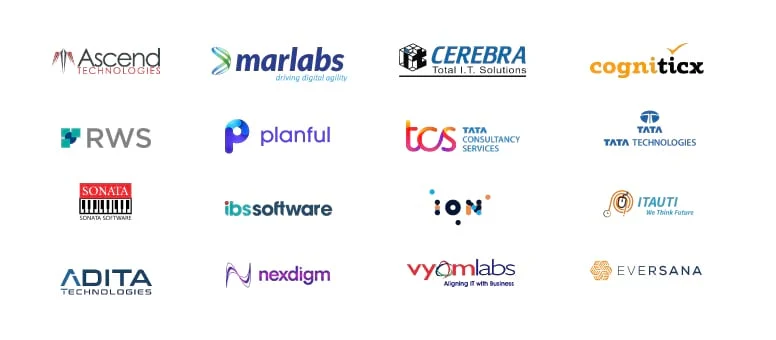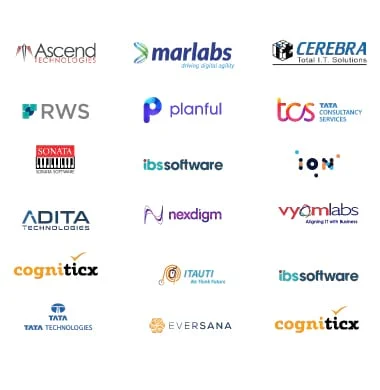30+ Hrs
Hands On Training
Lifetime Access
Updated Content
Customizable
Learning Paths
Industry Expert
Mentors
Projects
Advanced Interactive

Hands On Training
Updated Content
Learning Paths
Mentors
Advanced Interactive
AWS is referred to as Amazon Web Services, a comprehensive computing platform that provides effective solutions and services, a combination of different offerings like SaaS, Paas, Iaas. It also provides its extensive support by delivering tools to an organization like database storage, compute power and database storage.In the current days, Amazon Web Services has become a reliable and scalable platform with the capability to replace the infrastructure costs with low variable costs, thus marking as a benefit to the organization.
HKR trainings offers the best AWS course and is helping in nurturing the candidates with the key concepts and essentials required to make you an expert. You will be capable of clearing the AWS course certification exams. Through this course, you will gain knowledge on how to use the cloud computing services through theoretical and practical classes. In our AWS certification Training in Kolkata, You will also work on live projects to gain an insight and clear understanding on practical implementation of AWS. There is a high competition for AWS course certification and the students are showing keen interest in learning AWS. It's time for you to enhance your career by enrolling at HKR training to learn and improve your knowledge through the AWS Training in Kolkata.
To apply for the AWS Training in Kolkata, you need to either:
HKR offers comprehensive training to the individuals who aspire to grow and enhance their career. The AWS Training in Kolkata includes a structured course content which is divided into multiple categories allowing you to gain knowledge and proficiency in all the concepts. Below is the AWS Training course content which is divided into below modules.
1.1 History of Cloud Computing
1.2 Defining Cloud
1.3 Why do we use the Cloud?
1.4 Which cloud we use and Why?
1.5 Where can we use Cloud?
1.6 Types of Cloud. (Public, Private, Hybrid, Community)
1.7 Deployment Models of Cloud (IAAS, PAAS, SAAS)
2.1 History of AWS Cloud
2.2 AWS Cloud Services
2.3 Categories of AWS Services
3.1 Introduction to Identity and Access Management
3.2 Comparing Root Account and IAM User
3.3 Users
3.4 Group
3.5 Policies
4.1 Introduction to Simple Storage Service
4.2 Storage Classes
4.3 Lifecycle Management
4.4 Versioning
4.5 Cross-region Replication
4.6 Storage Gateway
5.1 Introduction to Elastic Compute Cloud
5.2 EC2 Instance Types
5.3 Security Group Basics
5.4 EBS
5.5 Volumes and Snapshots
5.6 EC2 Metadata
5.7 Elastic File System
6.1 Introduction to Databases on AWS
6.2 RDS backups, Multi AZs and Read Replicas
6.3 DynamoDB
6.4 Redshift
6.5 Aurora
6.6 ElastiCache
7.1 Introduction to Route53
7.2 Routing Policies
7.3 Simple Routing Policy
7.4 Weighted Routing Policy
7.5 Latency Routing Policy
7.6 Failover Routing Policy
7.7 Geo Proximity Routing Policy (Traffic Flow Only)
7.8 Multivalue Answer
8.1 Introduction to Virtual Private Cloud
8.2 Subnets
8.3 Network Address Translation
8.4 VPC Flow Logs
8.5 VPC Endpoints
8.6 VPC Peering
8.7 Direct Connect
9.1 Introduction to High Available Architecture
9.2 Load Balancer
9.3 Autoscaling Group
9.4 CloudFormation
9.5 Beanstalk
10.1 Comparing Server and Serverless
10.2 Introduction to Serverless
10.3 No Servers Really
10.4 Why Lambda?
11.1 Introduction to CloudWatch
11.2 Monitoring EC2 with Custom metrics
11.3 Monitoring EBS
11.4 Monitoring ELB
11.5 Creating a billing Alarm
11.6 AWS Resource Group and Tagging
11.7 Comparing AWS Config, AWS CloudTrail and Cloudwatch
12.1 Simple Queue Service (SQS)
12.2 Simple Workflow Service (SWS)
12.3 Simple Notification Service (SNS)
12.4 API Gateway
12.5 Kinesis
12.6 Elastic Transcoder
13.1 DevOps in AWS
13.2 Code Pipeline/Code Build
13.3 Code Commit/Code Deploy
14.1 Defining Cloud migration
14.2 Significance of migration
14.3 Migration process in AWS, the 6 R’s migration strategy
14.4 Virtual machine migration, migrating a local VM onto the AWS cloud
14.5 Migrating databases using Database Migration Service (DMS)
14.6 Migrating a local database to RDS
14.7 Migrating an on-premises database server to RDS using DMS, other migration services.
15.1 Defining AWS Lambda
15.2 How Lambda is different from EC2?
15.3 Benefits and limitations of Lambda
15.4 How does Lambda work
15.5 Use cases of Lambda, Lambda concepts
15.6 Integration S3 with Lambda
15.7 Defining Elastic Beanstalk, Working of Beanstalk, Beanstalk concepts, Beanstalk pricing
15.8 Defining configuration management
15.9 Defining AWS OpsWorks, AWS OpsWorks benefits
15.10 Comparing CloudFormation and OpsWorks, services in OpsWorks, AWS OpsWorks Stacks, OpsWorks pricing.
16.1 Defining FSx
16.2 Types of FSx, FSx for Windows server
16.3 How does FSx for Windows File Server work, FSx for Lustre
16.4 Use cases of FSx
16.5 Automatic failover process
16.6 Supported clients and access methods
16.7 Defining Global Accelerator, Working of Global Accelerator, Listeners and Endpoints
16.8 Defining AWS Organizations, AWS Organization Features, Managing multiple accounts
16.9 Defining ENIs, ENAs, and EFAs, Working with network interfaces
16.10 Enhanced Networking with ENA, EFA with MPI, Monitoring an EFA
Description: The main goal is to send multiple or mass emails to the potential and existing customers. Moonmail is one of the clou.....d platforms that is integrated with AWS Lambda, a combination of Lambda with simple email service. It will allow you to send a high number of mass emails to the high number of recipients. Read more
Description: The main goal is to develop a website that is secured, scalable and reliable that acts like a virtual private s.....erver to create a number of websites. Read more


The AWS Training in Kolkata will help you in clearing the AWS Solution Architect Associate Exam, allowing you to implement the skills and knowledge on the concepts and utilize the cloud solutions.
By the end of the AWS training, you will learn the following.
The AWS Training Certification in Kolkata is designed for the professionals who would like to enhance their professional career in the below roles.
Anyone who is interested to learn and build a professional career can take up the AWS Training course in Kolkata. A basic knowledge of programming is an added advantage.
To begin with the comprehensive training course offered in Kolkata, one has to search and get hold of the best institute that focuses on delivering knowledge to the candidates. Before taking a step to join the training, it is better to take suggestions from the professionals who already have the knowledge and have taken up the course. We at HKR in Kolkata are eager to bring up the talented professionals and help them in gaining the desired jobs in the dream companies.
Once the training course is completed, along with the assignments and real-time projects, HKR delivers the course completion certificate. Thai will help you in attaining the best job in a good organization in Kolkata very soon.
Our Kolkata Trainers have intense knowledge in AWS and are highly qualified and certified professionals with great expertise will deliver the AWS Training course in Kolkata.
There is a difference between the certified professionals and non-certified professionals. The certified professionals are given more value while hiring for different organizations considering them to be more knowledgeable.
HKR Training is keen in helping you provide complete guidance to attain your dream job. However, it is your responsibility and performance levels in the interview panels that will help more.
For Assistance Contact:
![]()
![]() +91 9711699759
+91 9711699759
Query